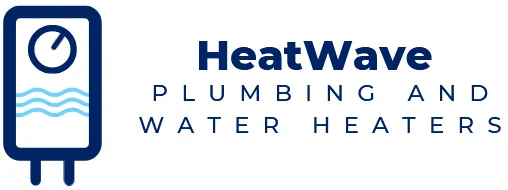Types of Water Heaters for Your Home
Investing in a new water heater can seem overwhelming, with a wide variety of options like traditional tanks, solar and tankless units, boasting different energy efficiency levels and hot water capacities. To make an informed decision for your family, our guide provides a thorough review of each type. Read on to get prepared and make the optimal choice, considering the pros and cons of each kind of water heater.

Storage Tank Water Heaters
Tank-style water heaters are an appliance that's in extensive use worldwide. They use gas, electric, or oil as a source of energy to heat and store water in insulated tanks. In addition, they ensure that hot water flows effortlessly from the tap whenever required.
Pros:
Lower cost.
Longer warranty periods when compared to similar options.
Easy maintenance.
Cons:
Low energy efficiency associated with traditional water heaters results in significantly higher operating expenses.
This type of heater has limited capacity leading to a shortage of hot water during peak demand.
There is a risk of water damage if the tank develops a leak or malfunction.


Tankless Water Heaters
Tankless hot water heaters are a modern and space-saving alternative to traditional models. They provide hot water on demand instead of storing it in a large tank, resulting in significant energy savings over time. While the initial cost may be higher, the long-term utility savings make up for it. Gain greater efficiency without sacrificing performance with our tankless models today.
Pros:
Tankless water heaters are a top-notch selection for homeowners who value convenient installation and energy efficiency.
These compact appliances deliver consistently low monthly bills while ensuring that you never run out of hot water.
Tankless units boast a longer lifespan, making them a savvy and economical investment in your abode.
Cons:
Tankless water heaters may require more upfront investment compared to traditional storage tank heaters.
The may pose complications in venting due to the need for additional piping, particularly in confined spaces.
Their limited capacity means that they may not be ideal for high-demand applications, thus resulting in insufficient hot water for each usage.
Heat Pump Water Heaters
Heat pump water heaters are a highly efficient and affordable means of heating water. Leveraging a small compressor to move air and enable hot water provision, these systems offer reliable electrical-free operation that can also be useful during power outages. They are an excellent option for those seeking energy-efficient heating alternatives.
Pros:
Higher energy efficiency can mean lower utility bills.
This is achievable through a heat pump water heater that harnesses renewable energy from the air.
Even during power outages, this method can continue providing hot water.
Cons:
Tankless water heaters come with a higher initial price tag versus their traditional counterparts.
These innovative gadgets could result in installing supplementary ventilation, lining up more installation challenges. Moreover, their limited capacity means hot water supply is restricted for a single use.
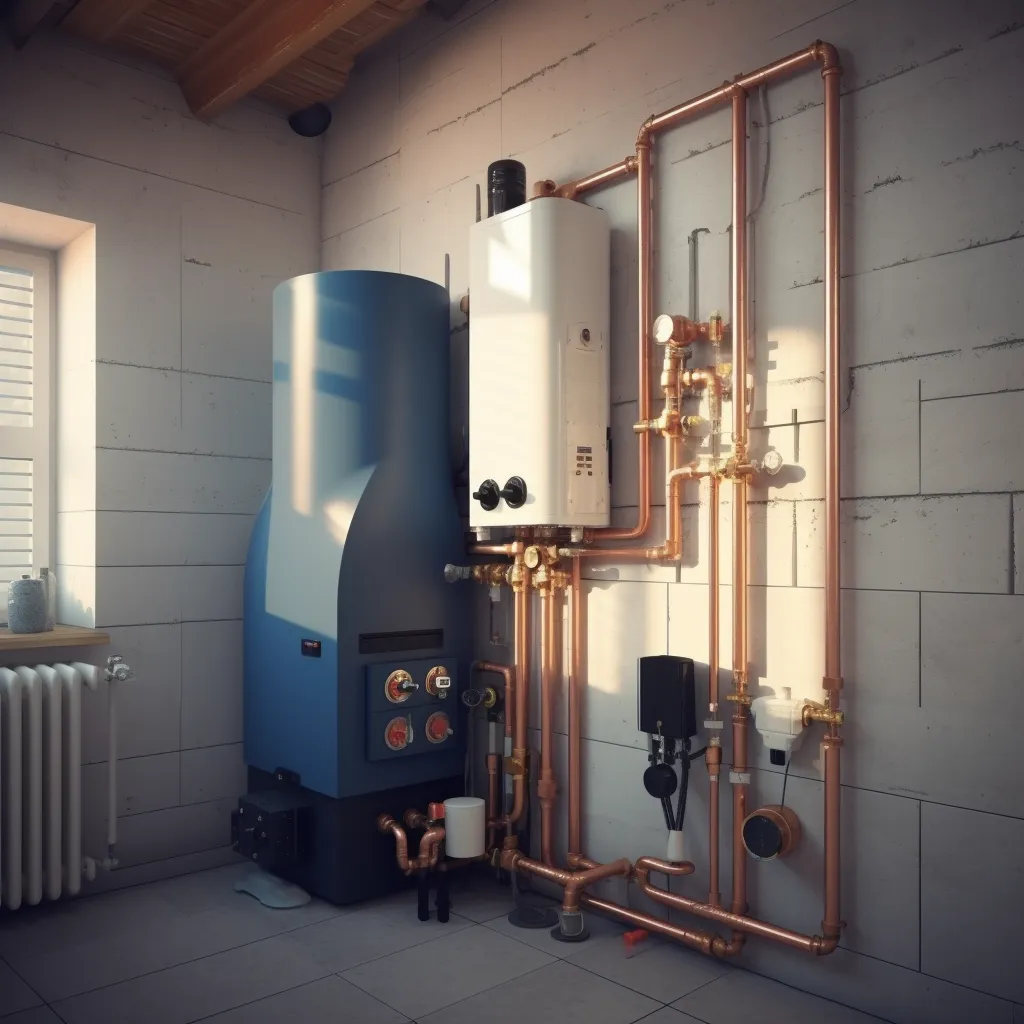
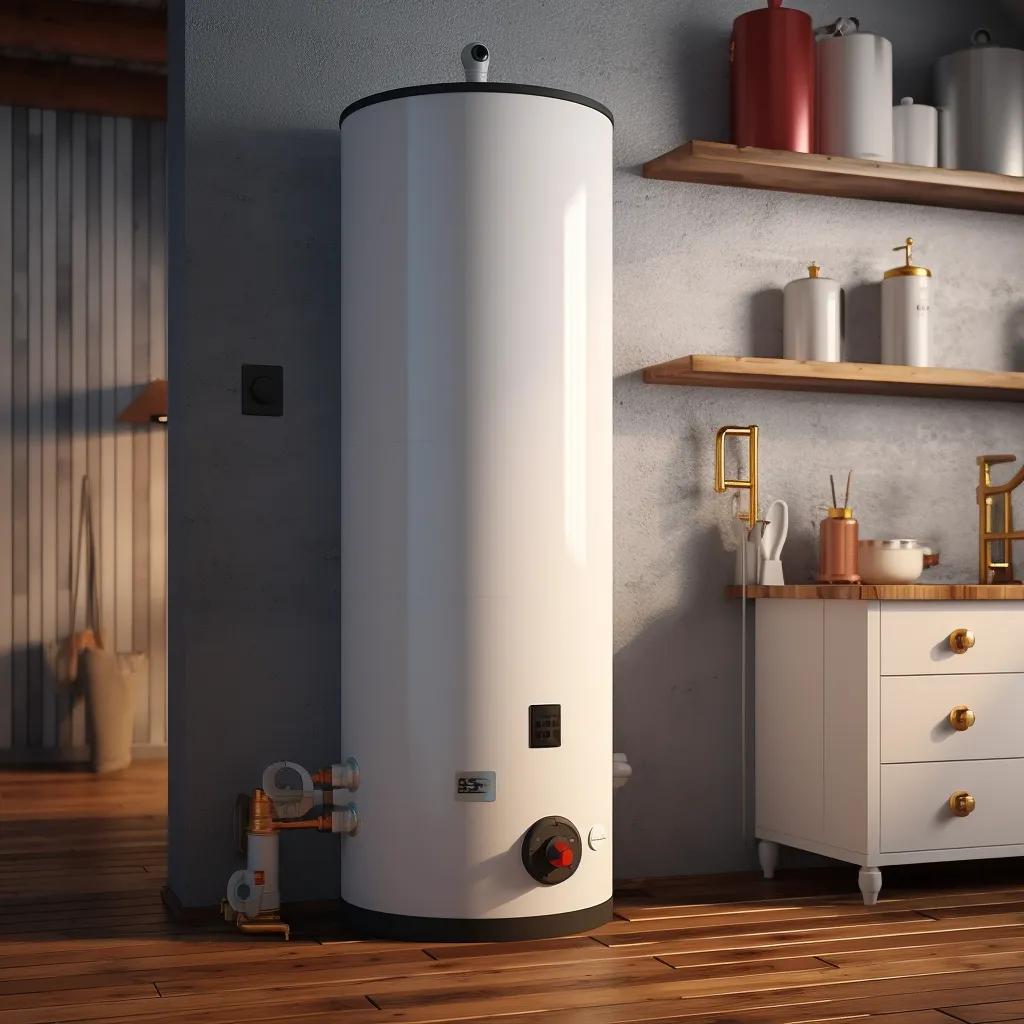
Heat Pump Hybrid Water Heaters
Heat pump hybrid water heaters integrate exemplary traits of conventional storage tanks and heat pumps, leading to high efficiency and reduced operating expenses. Despite the relatively higher initial cost compared to conventional water heaters, these devices offer unmatched functionality and superior effectiveness. Save costs in the long run with these eco-friendly heaters.
Pros:
These state-of-the-art units deliver higher energy efficiency that effectively reduces utility bills on a monthly basis.
They operate solely on renewable energy, responsibly sourced from the surrounding air to eliminate electricity wastage.
These hybrid water heaters can also generate
hot water in the event of a power outage.Notably, they have a longer lifespan compared to traditional storage tank heaters, making them a smart investment for any homeowner.
Cons:
These units have a higher initial cost compared to conventional storage water heaters.
They may require additional ventilation and space, leading to installation complications.
Due to their limited capacity, each use draws from a finite reserve of hot water.
If a tank fails or leaks, water damage can occur.
Heat pumps can create unwanted noise.
In warmer climates, these units may struggle with heating and cooling.
utility rebates may not be available in some areas. To summarize, if you're thinking about purchasing a tankless water heater, consider these disadvantages beforehand.
Solar Powered Water Heaters
Solar water heaters are an outstanding solution to cut down your monthly utility costs and harness renewable energy. They come in two types, active and passive systems, both heating stored water to reduce energy expenses. Opt for these appliances to reap economic and environmental benefits while contributing to sustainable living.
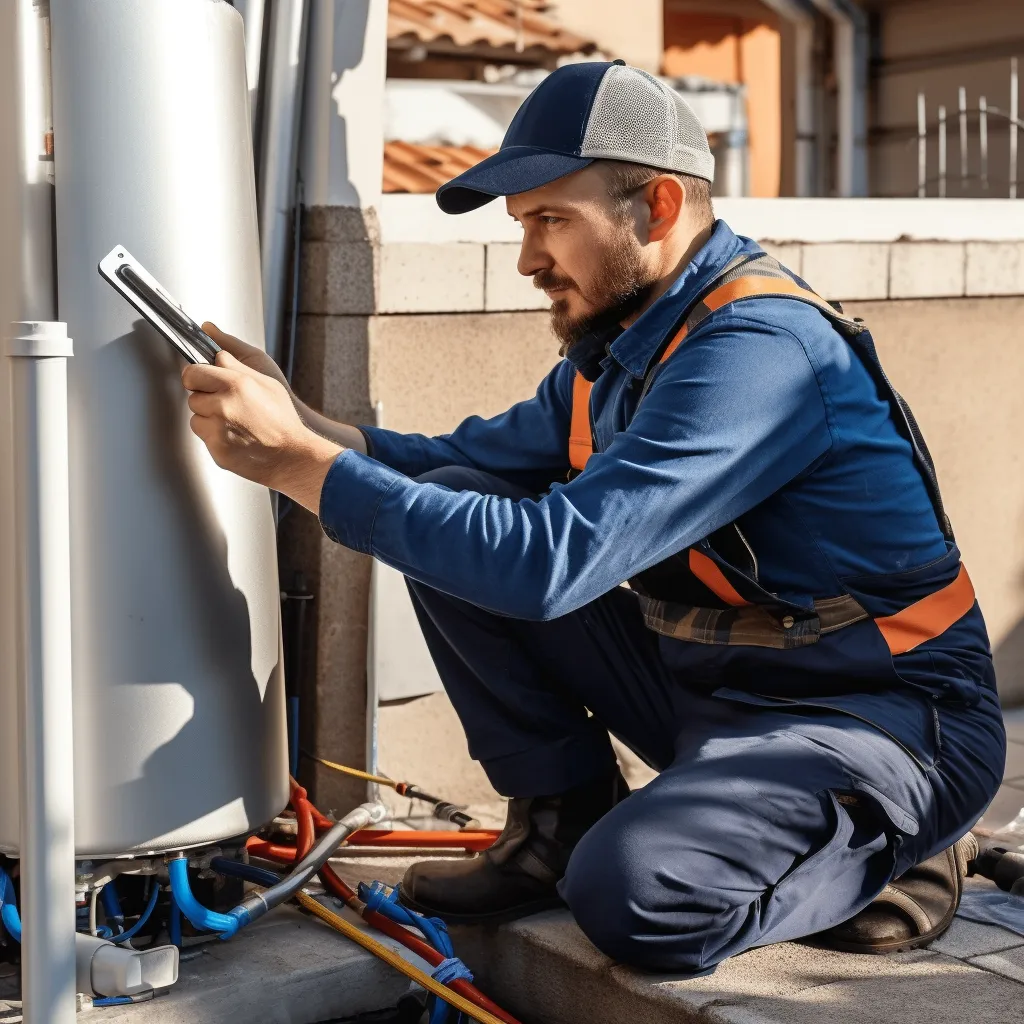
Active Systems:
Active solar-powered water heaters work by using pumps that transfer hot fluid from collectors to a storage tank for later use. Compared to passive solar thermal systems, they are more efficient and generate significant amounts of hot water. This makes them an ideal choice for homeowners who want to reduce their reliance on electricity or gas for heating water.
Passive Systems:
Passive solar water heaters harness the sun's power to heat water naturally through convection by carrying hot fluid from collectors to a storage tank. These systems come with low costs for installation and upkeep. Nevertheless, while compared to active systems, they provide a limited amount of hot water.
Pros:
Solar powered units lead to substantial monthly energy cost savings.
They use renewable solar energy, making them eco-friendly.
Compared to traditional water heaters, they have a longer lifespan, reducing environmental impact over time.
Cons:
While more expensive at first, solar-powered water heaters are a worthwhile investment for those looking for long-term cost savings.
These units require additional space and equipment for installation, but offer greater energy efficiency and independence than their traditional counterparts.
Solar-powered water heaters require regular maintenance to keep them running at optimal performance.
Users should also be aware of potential issues like limited capacity and potential heating and cooling issues in certain climates.
Homeowners may also face complications in the event of water damage or the need for expensive repairs or replacements.
Solar-powered water heaters may not qualify for certain utility rebates or be as effective in regions with limited sun exposure.
In short, while solar-powered water heaters offer numerous benefits, they also come with certain drawbacks and requirements that should be considered carefully before making a purchase.

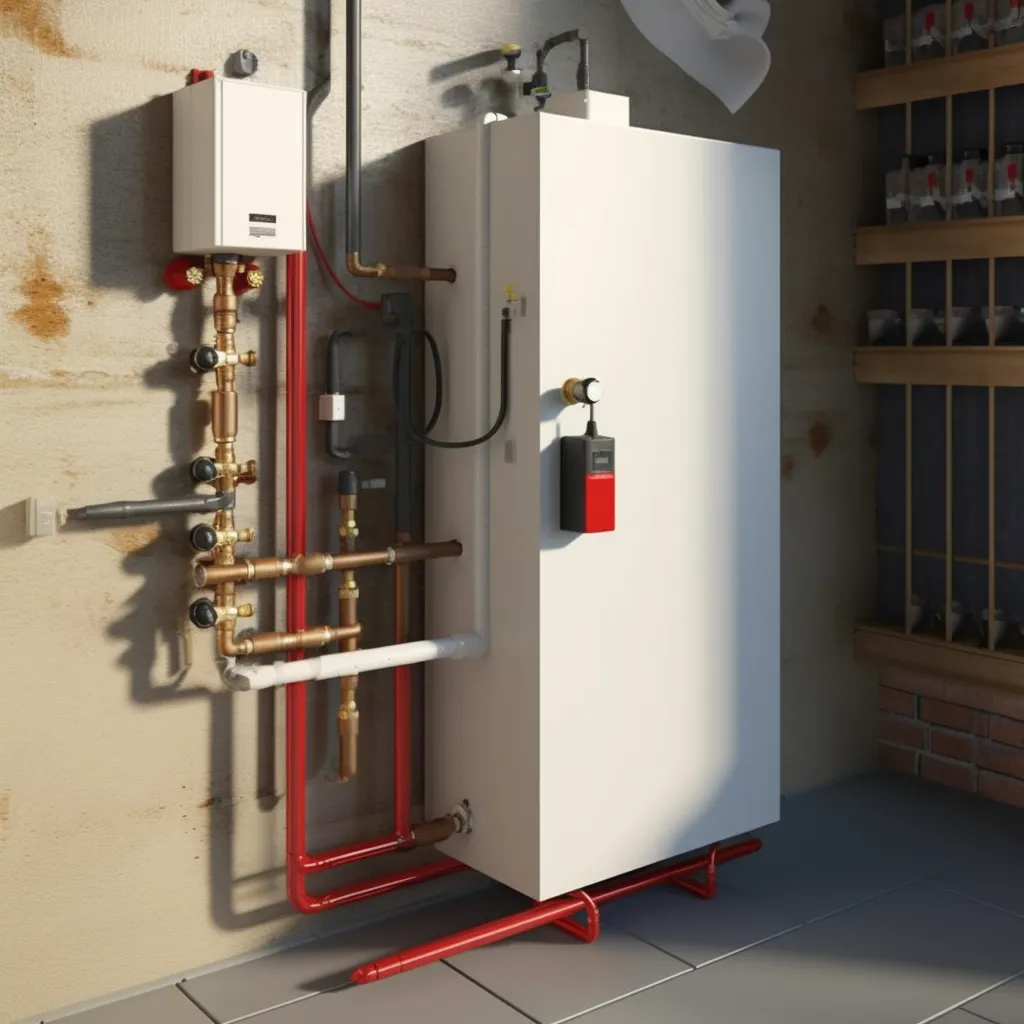
Point-of-Use Water Heaters
Point-of-use water heaters deliver hot water instantly, without a bulky storage tank, making them a perfect match for small spaces and cost-conscious individuals. Their efficient design reduces energy consumption, ultimately bringing down monthly bills. Choose these systems and save more while enjoying hot water every time you need it.
Pros:
With exceptional energy efficiency leading to lower monthly utility expenses.
These units also have a compact size to enable their hassle-free installation and maintenance in confined spaces.
They tend to have a longer life expectancy compared to storage tank heaters, making them a fantastic investment.
Cons:
Point-of-use water heaters present different and unique characteristics compared to traditional storage ones, both in terms of operation and installation.
Although they provide hot water on demand, their limited capacity and high initial cost can be a downside.
Their installation may require more space and ventilation.
They generate more noise while operating.
These models are not recommended for regions where hot water is in high demand and frequent use, and they may lead to heating and cooling issues in warm areas.
While these units can sometimes be eligible for utility rebates and incentives, the same may not be true for tankless models.
Point-of-use systems come with the risk of water leaks that can cause water damage in case of malfunctions.
Water Heaters With Hydronic Boilers
Hydronic boilers are a highly efficient way to distribute heat through your space using water instead of air. They are a versatile solution that can provide hot water for domestic use in colder climates while also meeting your hot water needs at an affordable rate when paired with tank water heaters. With their unique circulation system, these boilers offer optimal heating results and represent a cost-effective choice for your home or workplace.
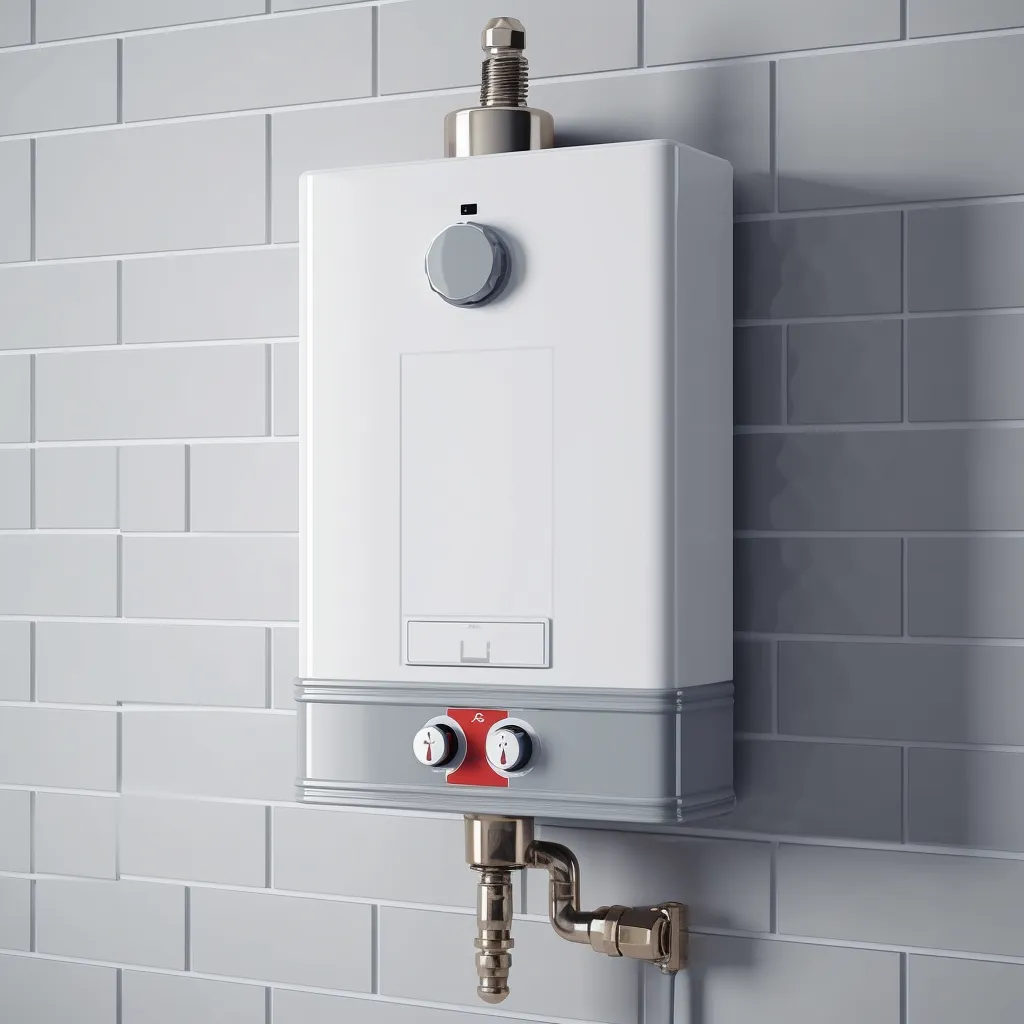
Pros:
This high-efficiency system is designed for space heating and domestic hot water, delivering unparalleled cost savings to homeowners.
The compact design ensures fuss-free installation, making it the top choice even for tight home spaces.
As compared to traditional water heaters in tanks, this system boasts a considerably longer lifespan, making it a reliable and sustainable choice for years to come.
Cons:
Tankless water heaters are a costlier upfront investment than traditional storage models.
These types of heaters also tend to have limited capacity, resulting in less hot water availability per use.
Limited hot water can be challenging for high-usage households.
The heater component in tankless models can create notable noise during its operation, which may not be ideal depending on where the unit is installed.
These models may not qualify for some utility rebate programs which can be frustrating for homeowners.
Another consideration to make is the climate and temperature requirements; in areas with high demands for hot water, these units may not be the best option. In the event it needs to be serviced, however, repairs or replacements can be quite costly.
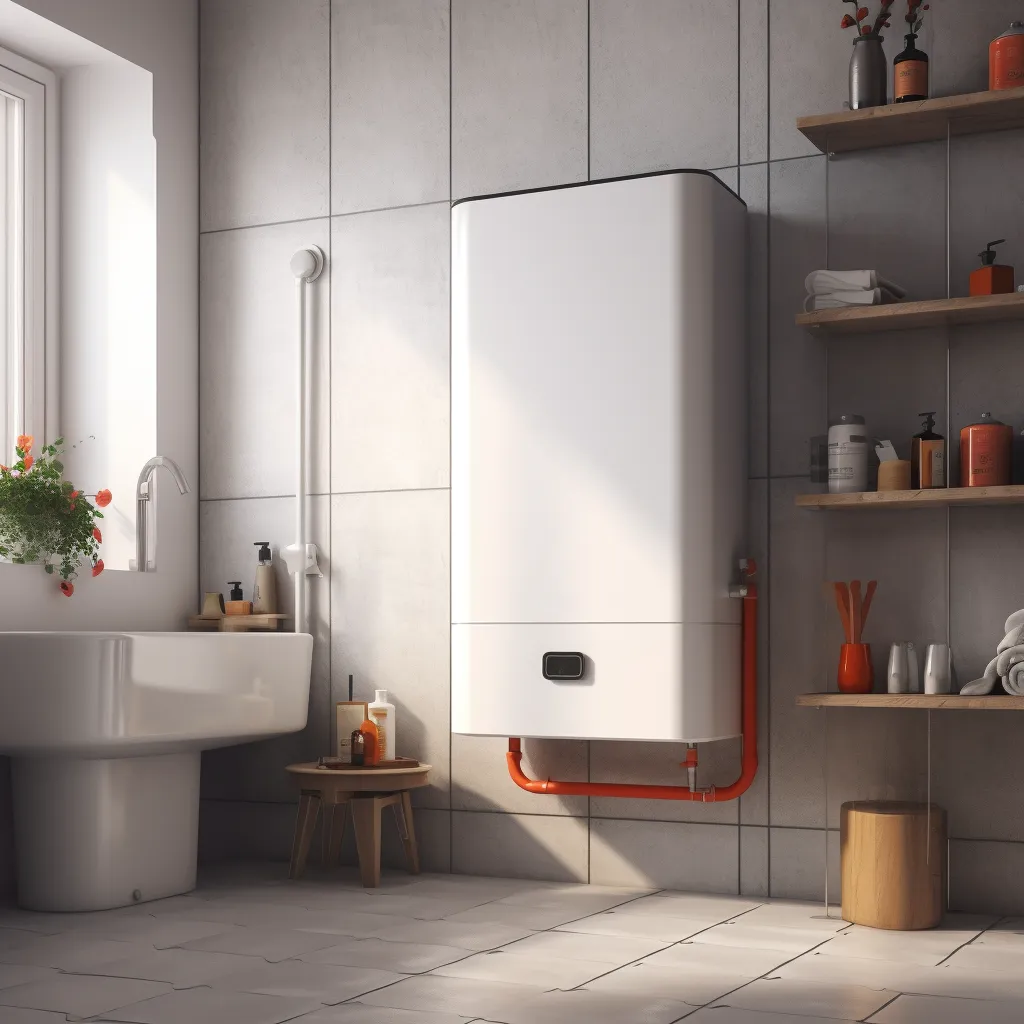
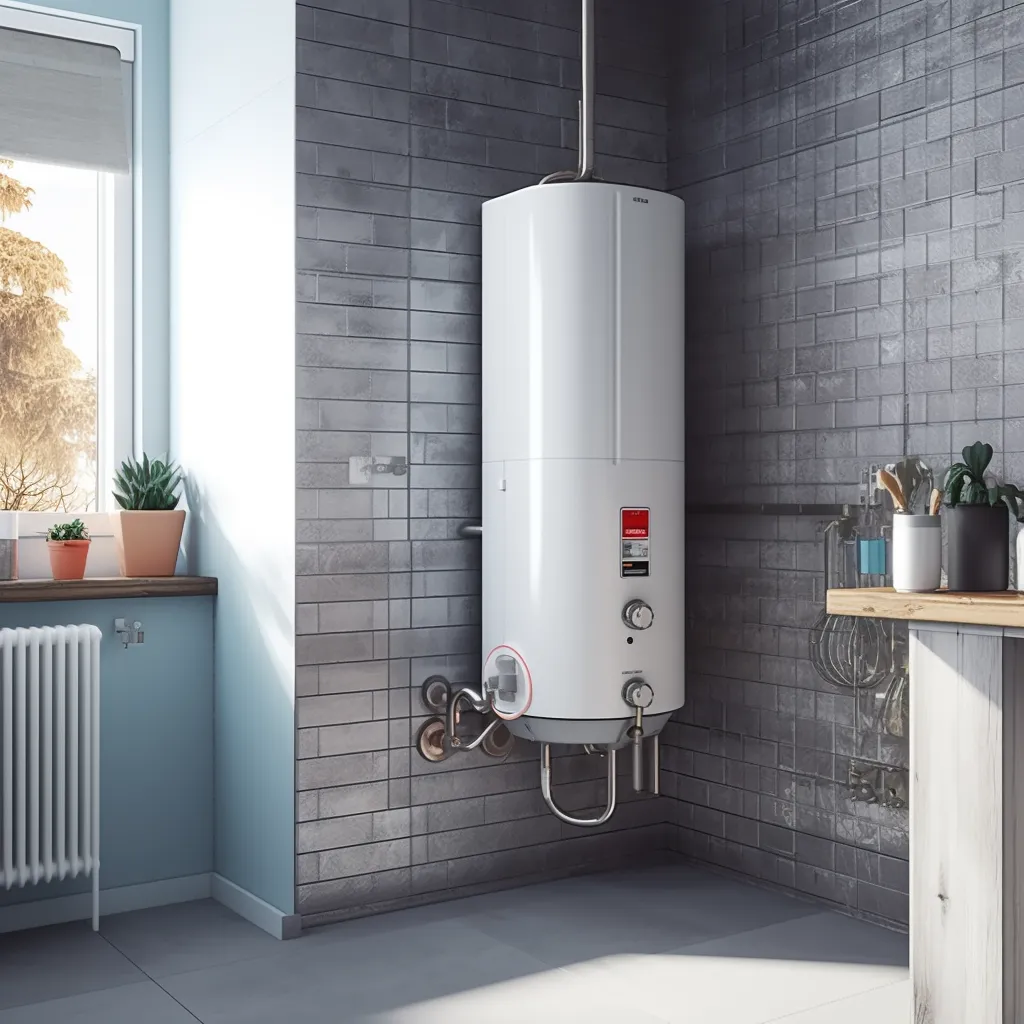
Smart Water Heaters
Upgrade your home with Smart Water Heaters - the newest heating technology. Manage your hot water usage and expenses easily from anywhere using Wi-Fi enabled thermostats. Reduce monthly bills with energy-saving options like vacation mode. Control temperature settings via your phone to save energy. Stay ahead in the game with innovative and cost-effective solutions.
Pros:
The Wi-Fi enabled thermostat provides remote control for water heating, accessible through smartphones and other devices.
They feature modes like the vacation mode to help reduce energy consumption and minimize utility costs.
With a longer lifespan compared to traditional water heaters, the compact model is easily installed and maintained in restricted areas.
Cons:
Smart water heaters are typically more expensive versus their traditional counterparts.
In addition, not all utility rebates or incentives might apply to them.
Certain models may necessitate more software updates for compatibility with newer devices.
Keep in mind that if your Wi-Fi connection is not secure, this could entail potential security risks.
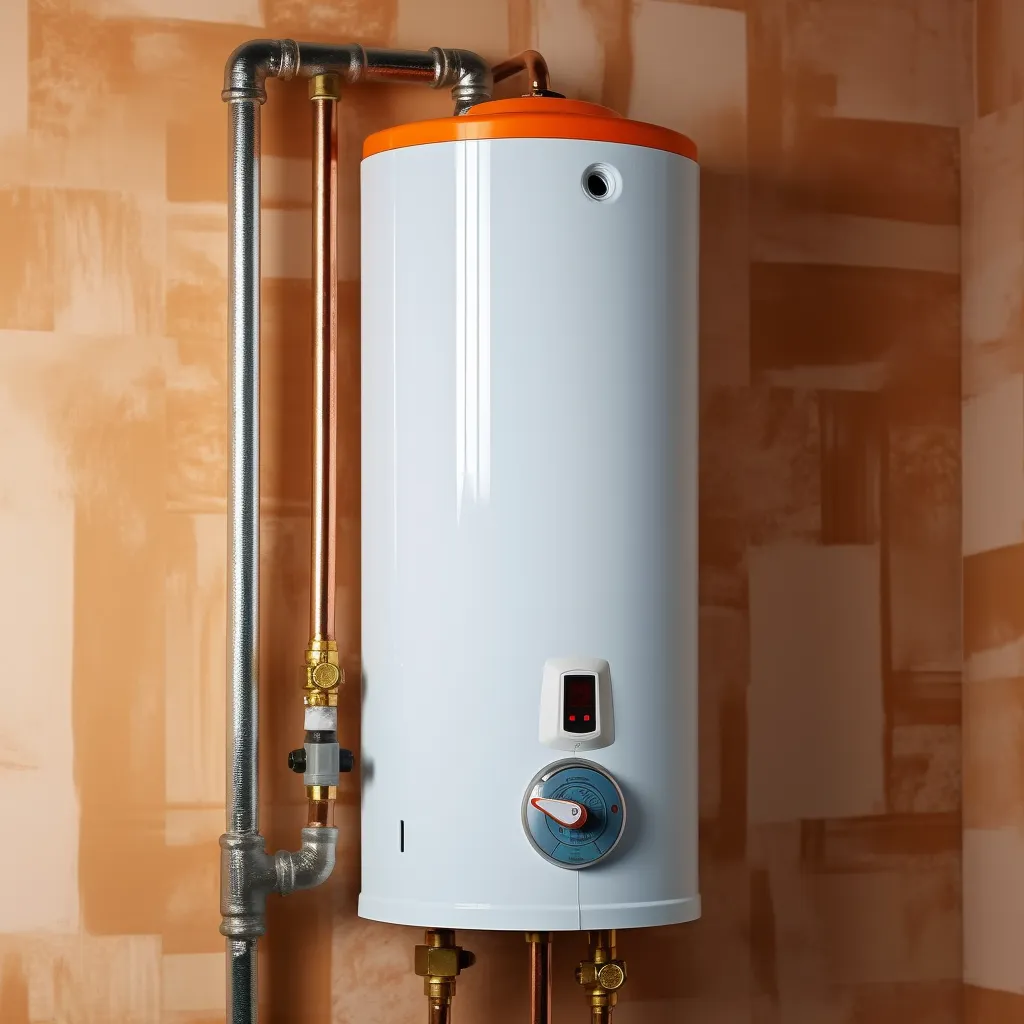
Condensing Water Heaters
Condensing hot water tanks are excellent investments in modern housing, boasting space and cost-efficient features. With the functionality of tankless and traditional storage tank water heaters, the innovative models use the latest technology to extract heat from exhaust gases offering significant cost savings.
Pros:
This cutting-edge product efficiently consumes renewable energy to provide hot water, making it more eco-friendly compared to conventional tank water heaters.
Apart from reduced utility bills, it has a longer lifespan.
It works even during power outages, providing an uninterrupted hot water supply.
Cons:
They tend to be more expensive thank traditional water heaters.
They require additional ventilation room for installation, which can make the installation process more challenging.
Since these systems are not storage-based, their capacity is limited and may not be suitable for higher demand hot water needs.
In case of tank failure or leakage, there is always the possibility of significant water damage issues.
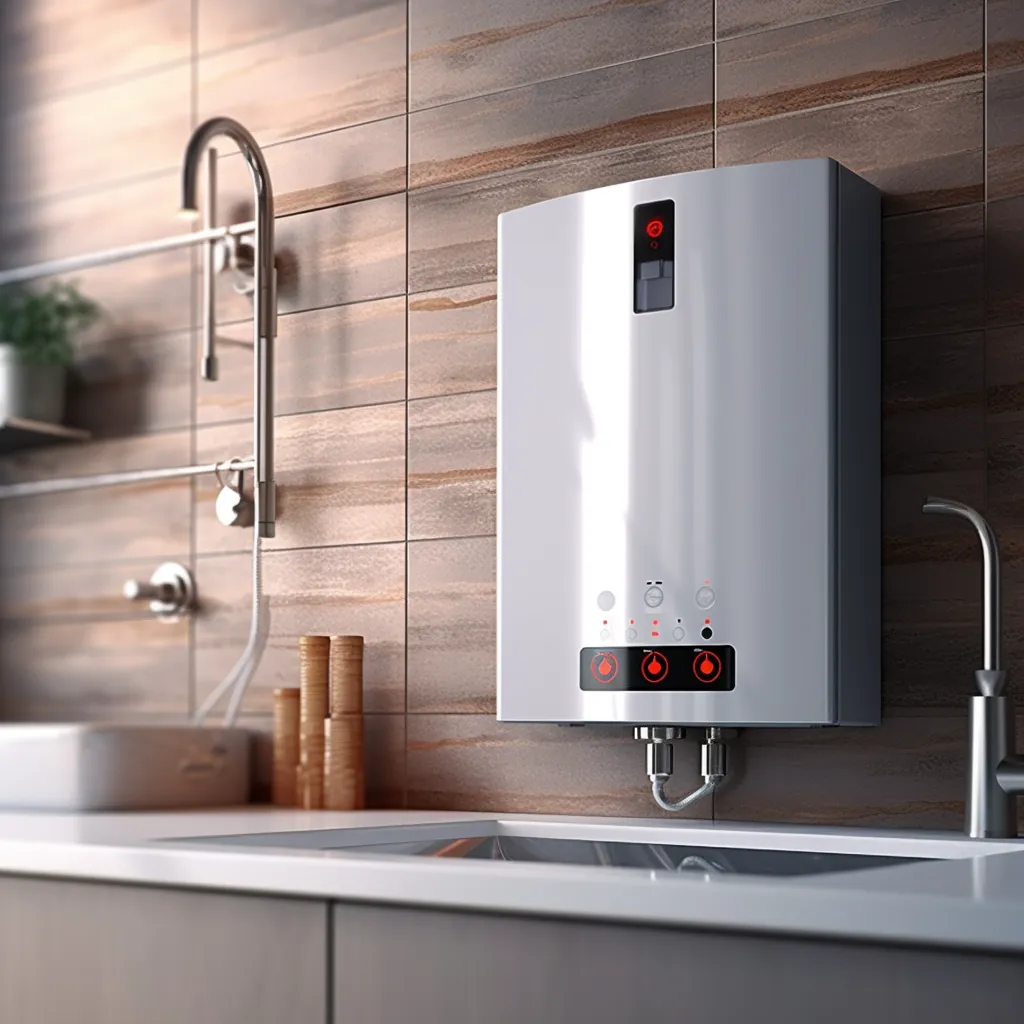
How to choose the right
water heater for your home
Properly sizing your water heater is critical to ensure an energy efficient and comfortable living space. Buying and running a water heater that is too small wastes money and leaves your family in the cold. And while an oversized model may appear more powerful, it is not only more expensive, it also eats up valuable space in your home. Carefully consider your family's lifestyle and daily hot water needs to determine the ideal water heater size. Trust us, selecting the right size will not only ensure affordable home comfort but also offer an ample supply of hot water.
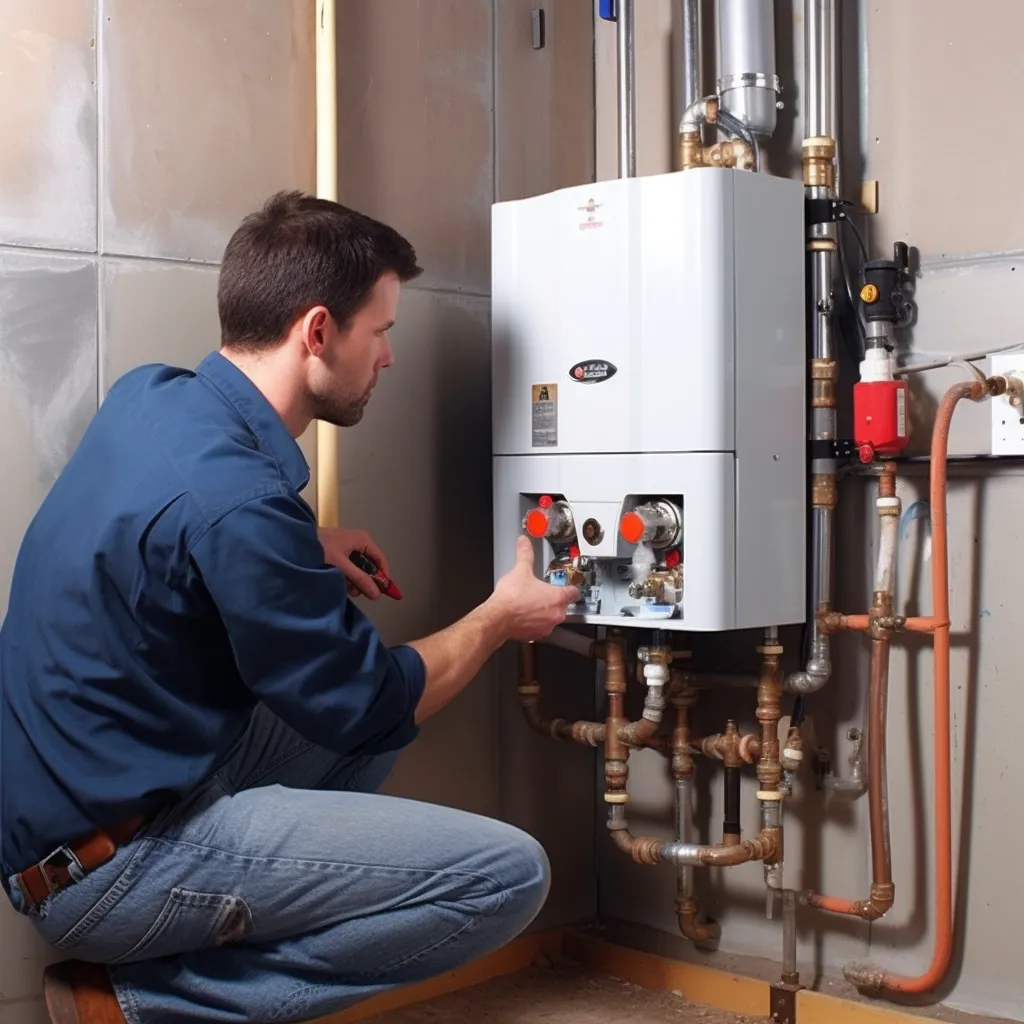
When should you
replace your water heater?
A properly working water heater is vital for supplying hot water to your shower, dishes, and laundry in your home. Typically, water heaters last approximately 10-15 years, and if your water heater has served its purpose, it's time to upgrade with a new one. Invest in a reliable, high-quality water heater that matches your household needs and ensures uninterrupted hot water supply by seeking help from our professional plumbing service.
There are additional indications to look out for that may be the right time to replace your water heater:
Water tank leaks.
Discolored/rusty hot water.
Fluctuating temperature are issues that shouldn't be taken lightly.
Weird noises from the water heater.
A scarcity of hot water, it's imperative to fix these issues immediately.
It is critical that you consult with a certified plumbing expert to review and explore solutions if you encounter water heater issues. While the cost of a new unit can be substantial, the long-term energy savings and reliability make it worthwhile to consider as an investment. Our plumbing professionals take pride in diagnosing your water heater and providing you with peace of mind that comes with quality repairs.
Maintenance tips for
water heater efficiency
Properly maintaining your water heater is crucial to prevent unexpected breakdowns. To ensure efficiency and reduced expenses, frequently flushing the tank to remove sediment buildup is a must. Moreover, keeping the area around the heater tidy and inspecting the anode rod and pressure relief valve is essential for longevity. By following these simple routines, you'll keep the warm water flowing, spare yourself from any costly surprises and extend the durability of your water heater.
Benefits of hiring a licensed plumber
to replace your water heater
If you're mulling over whether to replace your water heater, it may seem tempting to tackle the job on your own. But hiring a professional has numerous benefits to bear in mind - not least of which is avoiding costly and risky mistakes. Trust us to handle it all while you rest easy knowing you and your home are in safe hands.
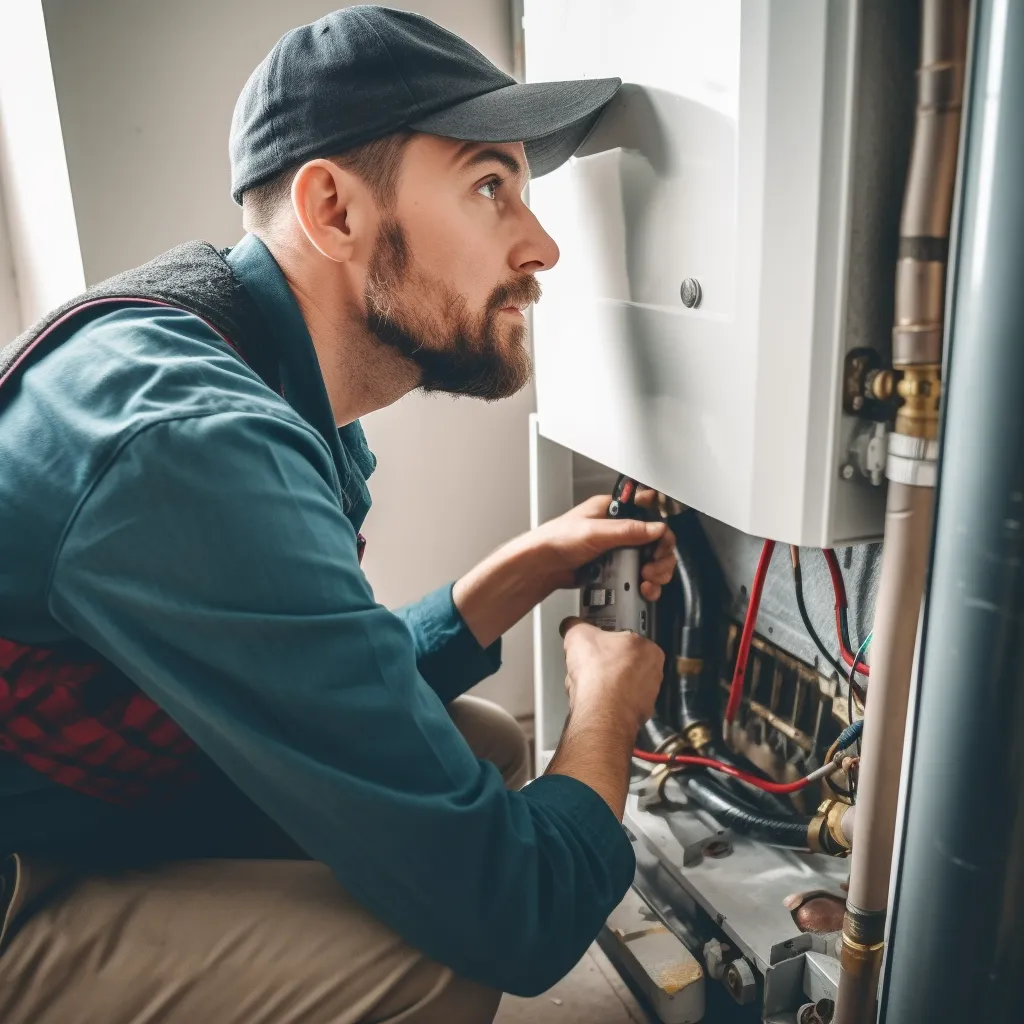
Professional installation of your water heater is necessary for safety and efficiency. Experts possess the training to recommend the optimal type and size to meet your specific needs. Their attention to local building codes ensures that any installation complies with regulations. In the event of any issues, a professional's expertise can quickly troubleshoot and resolve them. Count on these professionals, equipped with required tools and equipment, for your water heater installation needs.
Replacing a water heater may turn into a hassle, and conducting such a task on your own could become far costlier than you anticipate. It is crucial to hire licensed professionals to get the job done right and save you time and money along the process.
Contact Us
GET IN FULL TOUCH
PHONE:+(803) 974-4242
EMAIL:
roger@waterheaterchester.com
Chester, SC 29706
